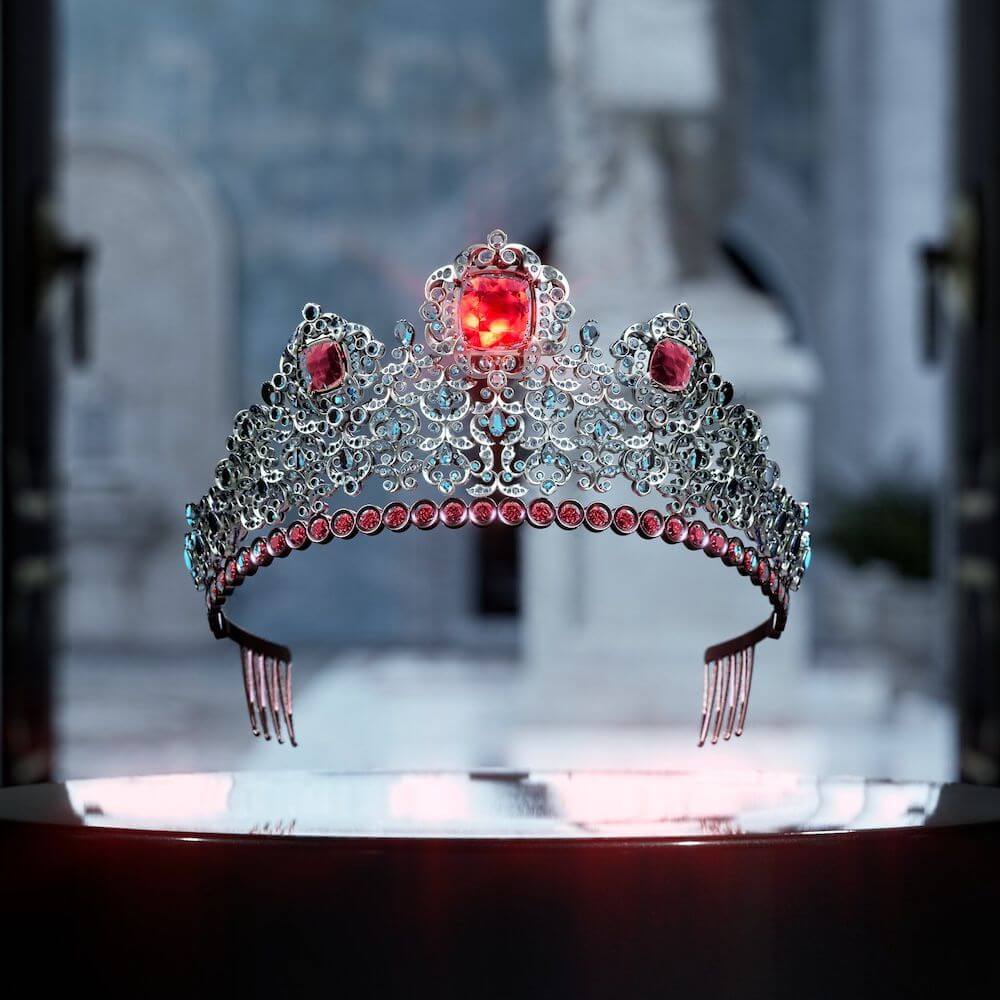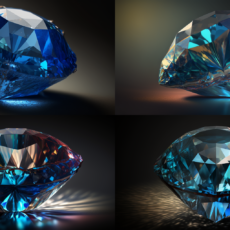Is 2022 the year for the luxury market to adopt NFTs?
A frequent question from our clients in 2021 was “What should we be doing with or about NFTs?” With the general consensus that the luxury industry was late to the party with e-commerce, brands are now more willing than ever to embrace new developments and reap the benefits of these for their sector.
The Facebook company’s rebrand to Meta, in a nod to the metaverse, is symbolic of the imminent shift to this new digital era, where the virtual and physical world are equally ingrained in everyday life. In his Facebook Connect keynote for this announcement, Mark Zuckerberg said:
“The best way to understand the metaverse is to experience it yourself, but it’s a little tough because it doesn’t fully exist yet.”
While we are yet to see the true potential of NFTs and their place within the metaverse fully realised, it is certainly exciting to see brands start to experiment with this new technology and be open to embracing it. This can only be expected to continue into 2022, and the sooner companies start exploring how they can get a foothold in this virtual space, the more chance of getting their brand visibility.
From our extensive expertise in the luxury industry, we got together our team’s insights on how we can already see brands incorporating NFTs, and how they might be applicable to our clients in the future.
How can we predict the future of NFTs?
Starting with the emergence of cryptocurrency Bitcoin in 2009, adding authenticity and safety to the trading of digital assets has made it possible to create alternative worlds and begin expanding the definition of what can be traded online.
NFTs are essentially a change in perception as to what has value, made possible by a system where ownership can be guaranteed through blockchain technology. This has allowed for the expansion from fungible (assets that can be traded equally) to non-fungible (assets that cannot be traded) digital art and goods.

The metaverse will see all of this grow to whatever extent possible. We’ve already seen luxury retailers make some bold moves into selling virtual goods online through digital platforms, such as The Dematerialised, which describes itself as ‘the digital department store of dreams’.
While sceptics may have denounced the metaverse as a flash in the pan, it looks like it is here to stay and set to become increasingly important. According to Morgan Stanley analysts, luxury digital/hybrid collectibles could be a $25 billion segment of a $300 billion NFT market by 2030.
Our key takeaways for luxury brands
In general, we haven’t seen NFTs widely adopted and there are a handful (though rapidly growing) examples of luxury brands using them. Gucci released its first pair of virtual sneakers in March 2021, Glenfiddich released a series of whiskeys tied to NFTs as recently as October 2021. Largely these are early forays and quite experimental.
In that vein, we came up with a four key takeaways from successful early adopters of NFTs and their potential for some of our luxury clients might be in the future:
1. Channelling novelty without novelty items
One of the truly remarkable things about NFTs is the kinds of things it will be possible to own. Importantly, not everything in the world will be suitable or valuable as an NFT, some inevitably have the feel of a novelty item. But in regards to luxury purchases, the opportunities are exciting.
For the fashion industry, couture pieces that might not be practical or reasonable to buy as physical items could be digitally purchased. Collections that might otherwise be relegated to storage, can be showcased online – to a global audience.
Developing an awareness of what truly has immense value as an NFT is somewhat experimental initially, but it certainly opens up a whole new world of possibilities with the removal of physical limitations.
2. Grabbing an early foothold in NFT marketplaces
In the virtual world, just like the physical, networking is a key tool for brands and individuals alike. Aura Luxury aims to enable luxury brands to communicate to address common issues across the industry, while making blockchain technology more accessible.
In order to create a cohesive customer experience, there needs to be an overview of the metaverse as a whole and an understanding of an individual brand’s place within it. Additionally, adapting your brand presence to be coherent both virtually and physically is also an important element of this new venture.
As with anything new, the first few forays are huge learning opportunities and looking into possible collaborations allows for different perspectives. It also allows playing to different strengths, especially if these partnerships are themselves digital.
This can be seen happening already, Dolce & Gabbana collaborated with digital marketplace UNXD to offer nine digital pieces of garments and jewellery with great success. They now have plans to launch a crypto community, DG Family.
3. Using long-term strategy
One of the most valuable qualities of NFTs is the potential to own a digital entity that is entirely unique – this is what makes them an asset for the luxury industry. In general, it’s an industry with an ethos for goods that are timeless, and therefore there needs to be potential for the long-term.
Many of the top performing NFTs from 2021 are from retail and the art world, some of which are great examples of using them as a starting point for a long-term marketing plan. They present a great opportunity to open up a conversation with a particular section of the market
In the luxury travel and hospitality industries, travel in itself is about gaining experiences rather than possessions. But NFTs could be a useful way to capture momentos of an experience to take home, without compromising baggage allowance, that last forever.
4. Planning beyond NFTs
In much the same way as a multi-faceted approach to marketing is crucial to success, NFTs are just one aspect of the metaverse. In order to truly fulfil its potential the virtual world still has a bit of catching up to do with the physical world, as elucidated by Mark Zuckerberg.
Solely focussing on NFTs would be like only focussing on influencers as your social media strategy. The entire metaverse will ultimately have to be considered and factored into the approach to create a narrative.
We have already seen the COVID pandemic force luxury brands to take a step forward into the digital landscape, and a continuing forward motion looks to be arriving at an increasing pace. Staying open to this and to the potential this has to radically change the way in which we do business, can unlock new worlds of opportunity.
We are excited to begin working with our clients on strategies to help them take this next step forwards into the metaverse, and as a luxury marketing agency , to build on our expertise and have another string to add to our bow in terms of the services we are able to offer.
The future looks very exciting.




